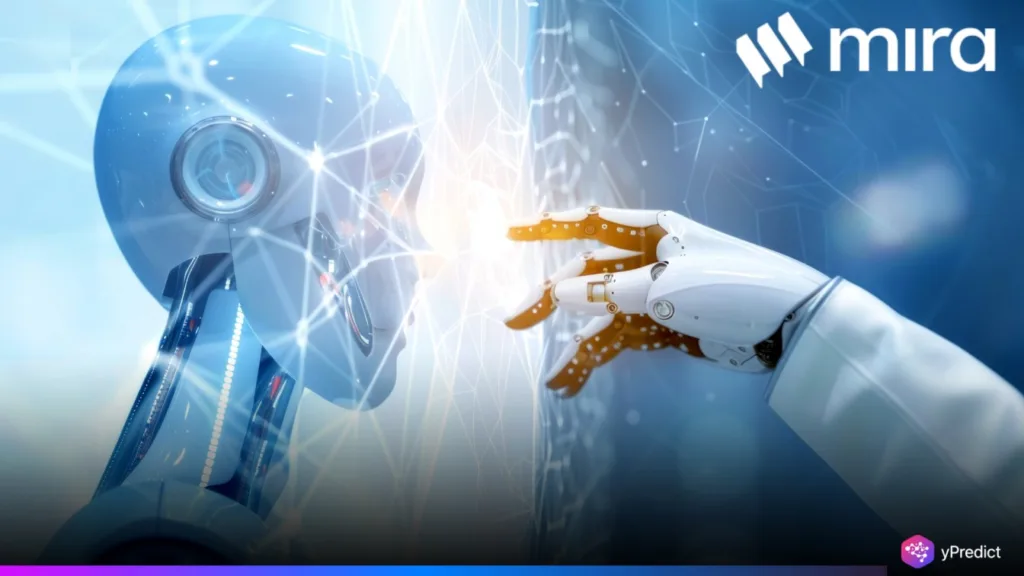
In a recent Twitter Space hosted by Mira Network, AI researchers from Lagrange and Playground-ARC unveiled a collaborative effort to combat a critical challenge in artificial intelligence, AI hallucination. The team focused on deploying Zero-Knowledge AI techniques to drastically reduce hallucination rates, which currently range between 20% and 40% in complex models. Mira’s new direction signals a growing urgency within the AI space to move beyond raw model performance and toward verified reliable output.
According to Mira, the integration of zero-knowledge proofs (ZKPs) into AI architecture can shift decentralized systems into more dependable infrastructures, especially as real-world use cases demand higher accuracy. This shift is not just theoretical. Backing the discussion was a 2023 study published in Nature Communications, which confirmed the potential of ZKPs in bolstering both data privacy and result validation in machine learning environments.
Multi-Model Consensus Targets 1% Error Rates
The highlight of the discussion was Mira Network’s ambition to slash AI hallucination rates from the current average to as low as 1% using a multi-model consensus mechanism. The method draws upon a number of AI models separately coming to independent conclusions on a query, with the mapping of each of those conclusions to the mean being used as a signifier regarding the accuracy on the given query. This means of verification in check is consistent with more wide-spread Zero-Knowledge AI framework, which emphasizes transparency while still protecting privacy.
Speakers from Playground-ARC emphasized that hallucinations in AI can diminish trust and disrupt entire industries, including domains such as legal tech, healthcare, and finance – all areas where the risks of misinformation can be exceedingly weighty. Rather than relying solely on brute-force computing or black-box neural networks, Mira’s architecture proposes distributed AI that communicates in trustless environments, reinforced by ZKPs. This brings scalability and security together, without compromising output quality.
IEEE Endorsement Adds Weight to Trustless AI Claims
Mira Network’s vision echoes findings in a 2024 IEEE paper, which examined trustless AI ecosystems where ZKPs play a central role. The study emphasized the importance of output accountability in large language models and recommended mechanisms that reduce hallucination while ensuring decentralization. IEEE’s conclusions support Mira’s move to fuse Zero-Knowledge AI with modular verification layers.
According to Lagrange’s research head, incorporating these techniques builds a new class of AI agents: verifiable, tamper-resistant, and cryptographically secure. These developments set a higher standard for how decentralized AI systems can evolve beyond hype cycles and move toward lasting, scalable adoption. The idea is not just to mitigate risks but to redefine how machine intelligence earns trust in open systems.
Verifiable AI Market Projected to Hit $50B by 2030
Industry forecasts appear to support Mira Network’s direction. A 2025 report by the Blockchain Research Institute predicts a $50 billion market for verifiable AI by 2030, emphasizing its growing demand across traditional industries. Use cases range from automated compliance in finance to verifiable diagnostics in healthcare, all dependent on zero-knowledge architectures that prevent misinformation.
As decentralization matures, the need for AI hallucination safeguards becomes foundational. Mira’s effort to implement Zero-Knowledge AI mechanisms represents one of the first serious moves toward creating machine intelligence that operates with audibility built in from the ground up. While many crypto-AI projects remain stuck in speculative loops, Mira’s emphasis on measurable accuracy and industrial applicability reflects a real pivot. It’s not about theoretical superiority, it’s about real-world performance in high-stakes environments.
Mira Network Signals the Next Phase of AI Evolution
The collaboration between Mira Network, Lagrange, and Playground-ARC is more than a research showcase; it is an industry signal. With backing from respected institutions and clear technical direction, Mira is leading the charge in building Zero-Knowledge AI models that scale securely and perform consistently. Mira is not only solving a problem of AI hallucination, but by tackling it head-on, it is also creating the foundation for trusted machine reasoning in decentralized systems and, if successful, has the potential to change what the future of human interaction with intelligent agents looks like where humans will be able to trust that what they see, invent, read and ultimately use as real.






